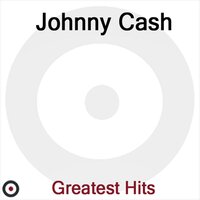| Dont Take Your Guns to Town |
|---|
| A young cowboy named Billy Joe |
| Grew restless on the farm |
| A boy filled with wanderlust |
| Who really meant no harm |
| He changed his clothes and shined his boots |
| And combed his dark hair down |
| And his mother cried as he walked out; |
| Don't take your guns to town, son |
| Leave your guns at home, Bill |
| Don't take your guns to town. |
| He sang a song as on he rode, |
| His guns hung at his hips |
| He rode into a cattle town, |
| A smile upon his lips |
| He stopped and walked into a bar and laid his money down |
| But his mother's words echoed again; |
| Don't take your guns to town, son |
| Leave your guns at home, Bill |
| Don't take your guns to town. |
| He drank his first strong liquor then to calm his shaking hand |
| And tried to tell himself at last he had become a man |
| A dusty cowpoke at his side began to laugh him down |
| And he heard again his mother's words; |
| Don't take your guns to town, son |
| Leave your guns at home, Bill |
| Don't take your guns to town. |
| Bill was raged and Billy Joe reached for his gun to draw |
| But the stranger drew his gun and fired before he even saw |
| As Billy Joe fell to the floor the crowd all gathered 'round |
| And wondered at his final words; |
| Don't take your guns to town, son |
| Leave your guns at home, Bill |
| Don't take your guns to town. |
Lyrics Dont Take Your Guns to Town - Johnny Cash

Song information On this page you can read the lyrics of the song Dont Take Your Guns to Town , by -Johnny Cash
Song from the album: The Greatest Hits of Johnny Cash
In the genre:Кантри
Release date:16.12.2009
Song language:English
Record label:Baierle
Select which language to translate into:
Write what you think about the lyrics!
Other songs by the artist:
| Name | Year |
|---|---|
| 2002 | |
| 2005 | |
| 2001 | |
| 2009 | |
| 2012 | |
| 2002 | |
| 2002 | |
| 2005 | |
| 2002 | |
| 2002 | |
| 1999 | |
| 2002 | |
| 2020 | |
| 2011 | |
| 1995 | |
| 2020 | |
| 2002 | |
| 2002 | |
| 2002 | |
| 2002 |